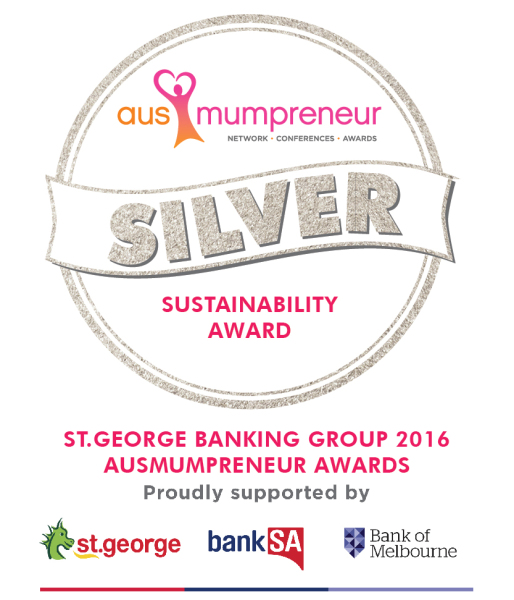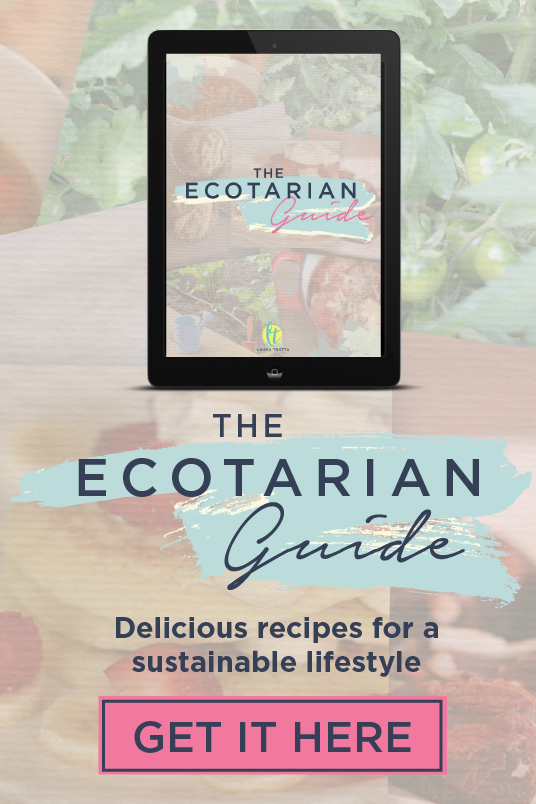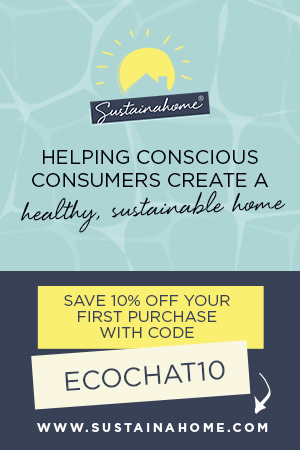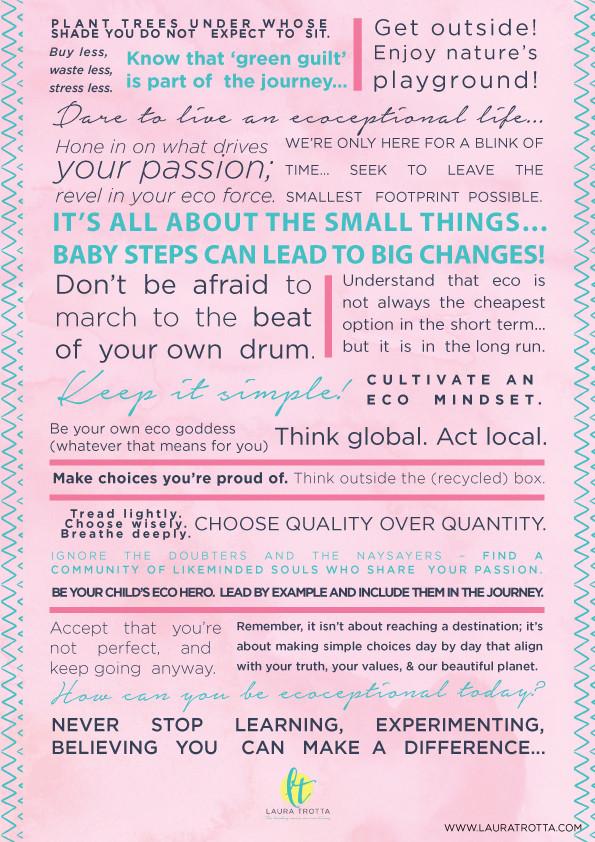Plastics have been linked with obesity, early adolescence, infertility and cancer and take hundreds of years, if ever, to break down in our environment. In my last post I shared why we need to be concerned about plastics and how you can stay healthy in an increasingly plastic world.
In this post I’m taking it a step further by showing how you can easily eliminate plastics from your home.
Podcast: Play in New Window
There are many ways you can reduce your exposure to toxins in plastics and reduce the volume of plastic waste your household produces. From avoiding plastics altogether, to getting smarter with how you use them, here’s 19 ways to break up with plastics in your home.
(1) Eat More Wholefoods
When you eat a wholefoods diet you break up with processed food, and when you break up with processed foods you drastically reduce the amount of plastic you consume.
Learning to cook from scratch is quite possibly the No.1 action you can take to improve your health and the health of our planet. For some simple, family-friendly recipes, check out my Ecotarian Guide.
(2) Buy Loose Produce
When out and about shopping for your fresh produce and wholefoods, choose loose produce. This may involve switching your shopping from supermarkets to farmers markets or organic stores, where produce is available in bulk rather than individually wrapped on plastic trays.
(3) Say NO To Plastic Bags and Containers
Buy quality, reusable bags for shopping such as those made from jute and canvas. This includes using reusable produce bags to carry your loose fresh produce. Many organic stores and delis will also happily weigh produce in your own reusable container too.
(4) Avoid Reheating Food In Plastic Containers
When reheating food opt to place it inside china, porcelain or glass storage containers or use stainless steel saucepans on the stove top. Avoid reheating foods in plastics, as studies have shown heat increases the likelihood of toxins leaching from plastic into food. Likewise, if using plastic containers for food storage, wait for the food to cool down before transferring to the container, or switch to glass containers (reusing glass jars is totally acceptable!).
(5) Use A Reusable Stainless Steel Or Glass Water Bottle
Rather than purchasing plastic bottled water, invest in a quality glass or stainless steel reusable water bottle and fill with tap, rain or filtered tap water. If you’re concerned about the quality of tap water, and particularly fluoride in the water supply, click here to learn more so you can make the best decision for your family.
(6) Use A Reusable Coffee Cup
Did you know that Australians use over 500 million disposable coffee cups a year? If you regularly grab a coffee or tea to go, invest in a quality reusable coffee mug. Even if the single-use cups in your favourite café are of the paper variety, most of these are sprayed with a polyethylene coating, which means they can’t be recycled anyway.
(7) Switch To Biodegradable Coffee Pods
If you thought our take away coffee cup habit was destructive, listen to this….. each day Australians consume around 3 million coffee pods in their home espresso machines! The majority of these are made from plastic or aluminium which don’t break down in the environment. If you have a coffee machine that uses individual pods, switch to biodegradable pods such as those from The Ethical Coffee Company.
(8) Avoid Snap Lock Bags And Plastic Wrap
So many households have an obsession with plastic food wrap and snap lock bags. Luckily they can be very easily replaced with reusable wraps, food covers and food pouches. We’re big fans of Bento lunchboxes, which do away with wrapping food altogether!
(9) Purchase Body And Beauty Care Products Without Microbeads
Microbeads can be found in a wide range of body care products from face scrubs to toothpastes. These tiny beads of plastic create havoc in our waterways where they’re ingested by small marine life. Choose natural, organic body and beauty products (that don’t contain microbeads) or learn to make your own from pure, raw ingredients.
Check out my Home Detox Boot Camp where we cover natural personal care and include many options for you to make your own.
(10) Reduce Your Consumption Of Plastic Toys
From gifting experiences to joining a toy library, there’s many ways you can stop plastic toys from taking over your home. Click here to discover more tips on how to stop the toy invasion.
(11) Rethink Your Party Habit
You can be eco and enjoy a good party – it just involves re-thinking your tableware more than anything. Rather than using disposable plastic cutlery and party plates, buy reusable melamine ones or opt for biodegradable party supplies. Get in the habit of carrying some reusable cutlery in your handbag to avoid grabbing plastic cutlery when out and about. Sporks (a spoon and fork in one) are super handy for this purpose.
(12) Ditch The Plastic Straw
If you or your children prefer to drink from a straw, invest in a reusable stainless steel straw rather than buying single-use plastic straws.
(13) Choose Modern Cloth Over Single-Use Nappies
The average baby wears over 5,500 nappies before toilet training. If using single-use disposable nappies (that contain plastic of course!), these nappies take a minimum of 500 years to break down in landfill. By switching to modern cloth nappies (which are surprisingly easy to use, look super cute and much healthier for your baby), you’ll be part of the solution, not the problem and save around thousands of dollars in nappies per child!
(14) Switch To Reusable Menstrual Products
Similar to nappies, single-use sanitary pads contain plastic and take years to break down in landfill. Tampons are individually wrapped in plastic, which means even if you use these you’re still consuming plastic every cycle.
Choosing reusable cloth pads or a silicone menstrual cup over conventional menstrual products is not only better for the environment, it’s a big win for your health and wallet too! Click here to learn more.
(15) Choose A Reusable Razor
If you shave, ditch the disposable razor and opt for varieties where you can replace the head instead. Alternatively invest in a rechargeable razor or hair epilator.
(16) Choose A Biodegradable Toothbrush
More than 30 million plastic toothbrushes are disposed to landfill in Australia each year! Swap your regular plastic toothbrush for a biodegradable one made from cornstarch or bamboo.
(17) Reuse Postal Satchels As Bin Liners
You may find as you transition more and more to an eco / zero waste home you may not even need bin liners. In fact, by keeping food scraps out of your bin and switching to reusable menstrual products and nappies, you may just find your home produces no waste at all! In the meantime though, reuse your postal satchel bags as bin liners. You can even line your bin with newspaper (that’s if you ever buy one!).
(18) Wear Natural Fibres Rather Than Polyesters
We often don’t think of plastics as being in our clothing, but synthetic fibres such as nylon and polyesters are precisely that ….. plastic. Make your wardrobe as natural and breathable as possible (and keep plastic micro fibers out of your waste water) by wearing fibres such as cotton, wool or bamboo and for extra brownie points, choose organic fibres wherever possible.
(19) Make Your Own Cleaning And Pest Control Products
By making your own cleaning and pest control products you won’t just save on a heap of plastic containers, you’ll save a bucket-load of cash and dramatically improve the health of your family too! Check out my Home Detox Boot Camp to find out more!
Final Thoughts
These 19 tips to break up with plastic in your home are really fantastic steps to get you started and will make a massive dent in the volume of plastics you consume.
Be sure to continue to recycle any plastics that do slip through the net. Many large supermarkets now also accept soft plastics for recycling.
So there you have it! You now have a hopefully better understanding of the environmental and health risks associated with plastics plus some strategies you can put into place to not only reduce your household waste, but also your exposure to the toxins in plastics.
If you’re keen to reduce your family’s exposure to toxins including those found in plastics, check out my FREE Cleaning with Foods Challenge. You can also download your FREE Home Detox Cheat Sheet or pop your name on the waiting list for my popular Home Detox Boot Camp here.
*Note: some of the links contained in this article are affiliate links, which means that I may receive a small commission should you choose to purchase the product I recommend*
Podcast: Play in new window | Download
- Sustainable Home Design- factors to consider to maximise sustainability - July 28, 2022
- Advantage and Disadvantages of Tiny Houses - May 31, 2022
- How School Strike 4 Climate is Empowering Youth to Fight for Their Future - May 1, 2022

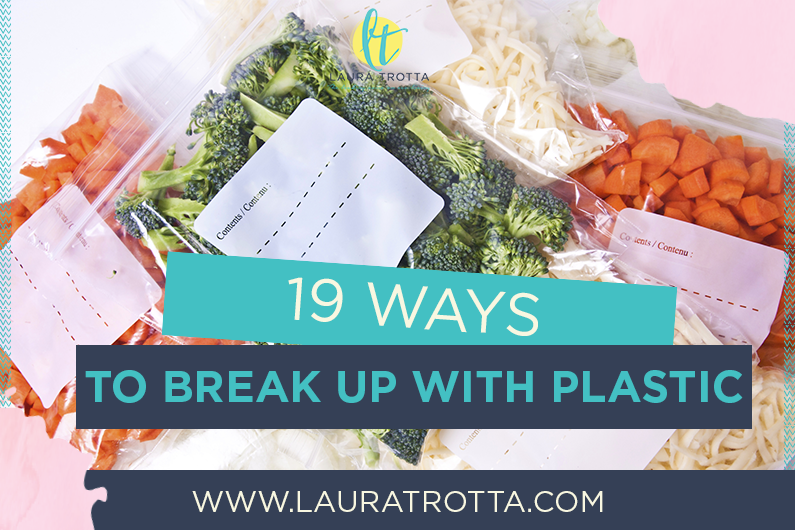
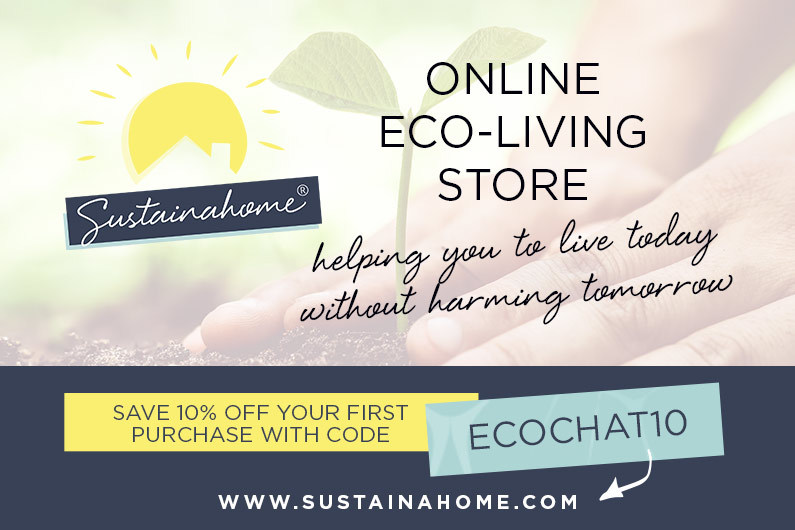

 Laura Trotta is one of Australia’s leading home sustainability experts. She has a Bachelor of Environmental Engineering, a Masters of Science (in Environmental Chemistry) and spent 11 years working as an environmental professional before creating her first online eco business, Sustainababy, in 2009. She has won numerous regional and national awards for her fresh and inspiring take on living an ‘ecoceptional’ life (including most recently winning the Brand South Australia Flinders University Education Award (2015) for the north-west region in SA and silver in the Eco-friendly category of the 2015 Ausmumpreneur Awards). With a regular segment on ABC Radio and with her work featured in publications like Nurture Parenting and My Child Magazine, Laura is an eco thought leader who’s not afraid to challenge the status quo. A passionate believer in addressing the small things to achieve big change, and protecting the planet in practical ways, Laura lives with her husband and two sons in outback South Australia.
Laura Trotta is one of Australia’s leading home sustainability experts. She has a Bachelor of Environmental Engineering, a Masters of Science (in Environmental Chemistry) and spent 11 years working as an environmental professional before creating her first online eco business, Sustainababy, in 2009. She has won numerous regional and national awards for her fresh and inspiring take on living an ‘ecoceptional’ life (including most recently winning the Brand South Australia Flinders University Education Award (2015) for the north-west region in SA and silver in the Eco-friendly category of the 2015 Ausmumpreneur Awards). With a regular segment on ABC Radio and with her work featured in publications like Nurture Parenting and My Child Magazine, Laura is an eco thought leader who’s not afraid to challenge the status quo. A passionate believer in addressing the small things to achieve big change, and protecting the planet in practical ways, Laura lives with her husband and two sons in outback South Australia. 